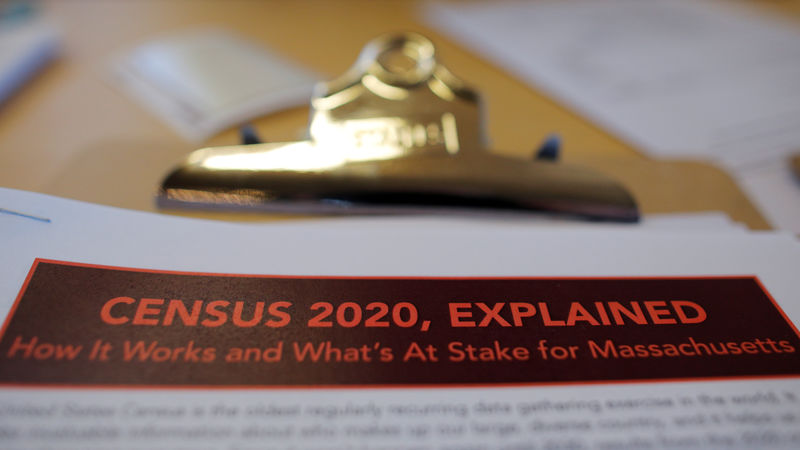By Nick Brown
NEW YORK (Reuters) - Civil rights groups who successfully blocked the Trump administration from adding a citizenship question to the 2020 U.S. census are seeking sanctions against government officials, saying they brazenly hid the truth about the inquiry's origins during trial.
In court papers filed on Tuesday, the American Civil Liberties Union asked New York federal Judge Jesse Furman to grant new discovery into the alleged misconduct, as well as monetary sanctions for the government's "concerted campaign of delay and obfuscation" during trial last November.
The request follows President Donald Trump's announcement last week that he would abandon plans to ask respondents to the 2020 census whether they are U.S. citizens, after the U.S. Supreme Court blocked the question in June.
The plaintiffs had argued the question would cause an undercount in Hispanic and immigrant communities, to the detriment of their political representation and access to federal aid.
They cited on Tuesday a laundry list of "false or misleading" testimonies that amounted to "fraud on the court," perpetrated by U.S. Department of Commerce Deputy Chief of Staff Earl Comstock, Acting Assistant Attorney General John Gore, Commerce attorney James Uthmeier, and U.S. Census Bureau official Christa Jones, among others.
U.S. Commerce Secretary Wilbur Ross and his staff insisted the DOJ had requested a citizenship question to help enforce the federal Voting Rights Act. But evidence at trial showed Ross and other top officials wanted to add the question to benefit Republicans during the next round of redistricting, the ACLU said. (https://tinyurl.com/y6z7rrj9)
In fact, it was Ross who asked the DOJ to make the request containing the voting rights rationale.
The ACLU also took issue with the government's steadfast denial of discriminatory motives for adding the question, when evidence discovered after trial proved that late Republican redistricting strategist Thomas Hofeller had hatched the plan as early as 2015 to benefit Republicans during redistricting.
The Justice Department declined to comment on Tuesday.
A Commerce Department spokesman could not be immediately reached.
Trump's decision to drop his bid for a citizenship question was not expected to end lawsuits. The president said he would ask the Census Bureau to supply state governments with citizenship data through other means, which could lead to a new host of legal claims.

The sanctions motion comes after Trump lawyers last year tried to sanction ACLU attorneys in a case over a pregnant immigrant teen who wanted an abortion. The Supreme Court rejected that request.